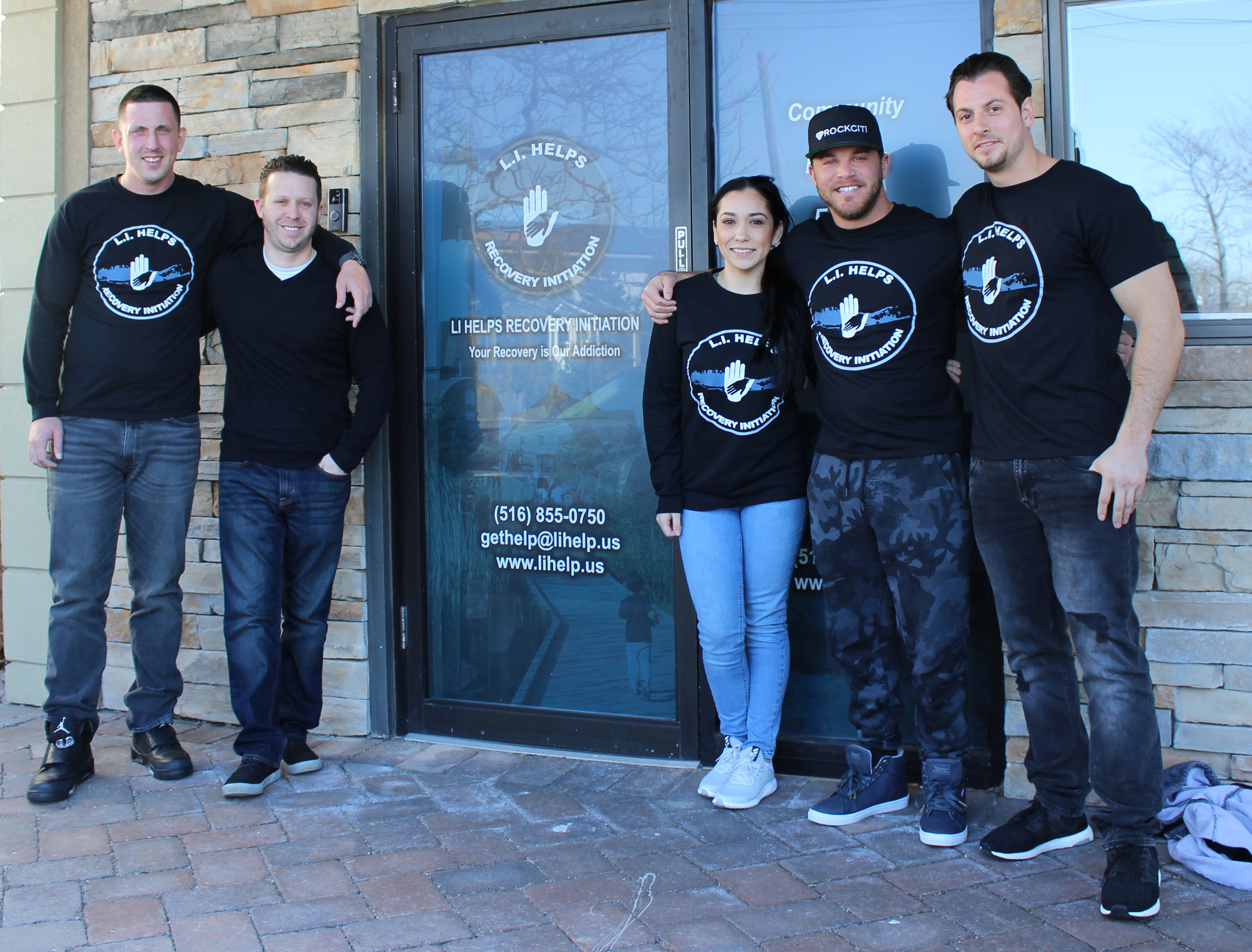LI Helps Recovery Initiative reshapes how individuals receive treatment
Founder, new Bellmore resident opens up sober home
LI Helps founders Louis Iacona and Eddie Haar have their own recovery stories. Their organization helps others by filling in the gaps they felt were missing along the way.
While the cold sweats, gripes and inner turmoil weighed on him, Louis Iacona, now a 28-year-old who recently moved to Bellmore, would lie in his bed and imagine he was at his own funeral. In his coffin, Iacona would focus on the woebegone expressions and tear-speckled cheeks of family members, friends and acquaintances. A priest would deliver a speech in an attempt to console: “Iacona was a bright kid who could instantly light up a room,” he would say. Then the priest’s words turned to white noise as Iacona refused to listen any longer. “Shut up!” he would say to the priest. “I haven’t done anything in my life but hurt these people!”
Iacona would wake up from his trance to his brother saying, “Come home, Lou.” He already was home, where he grew up in Massapequa, but his mind remained trapped in this possible reality if he continued using heroin.
At LI Helps, Iacona speaks directly with individuals who are seeking help and guides them through the recovery process. He said one of the most important steps is to establish trust. “By sharing our stories with them, they’re inspired and they respect us,” he said.
A Superman action figure stood among a mass of folders and files on Iacona’s desk at the LI Helps office in Lindenhurst. Eddie Haar, the vice president of LI Helps, agreed with Iacona, and said, “[Our clients] look at us as,” he paused and sat back in his desk, which looked similar to Iacona’s but with a Captain America figure instead. “Friends,” he said to conclude his thought.
The two men met in 2004 at Outreach House II, a Brentwood-based treatment program, and kept in touch. They founded LI Helps on Jan. 26, 2016, in an effort to fill in treatment gaps they felt were missing during their recovery process.
Haar explained that, when seeking help for his addiction, he felt a lack of personal connection that could have broken down the walls between wanting to get better and actually doing it. He said that if he and Iacona had a role model to help them along in their personal fights, “It would [have changed] the course of our lives.”
When an individual or the loved one of someone struggling with addiction calls LI Helps, one of five staff members have a conversation with them to map out a treatment plan. The LI Helps team stays in contact with the individual throughout the course of their recovery.
Since starting the organization Haar said several clients who have left treatment and have few sober friends contacted him. Iacona agreed and said, “They’re lonely.” This inspired the two to open up an LI Helps sober home in Mastic Beach in February 2017. Fourteen residents, three “house captains,” who are appointed by LI Helps, and on-site supervisor Ryan Baum, occupy the house.
LI Helps also continues to guide their clients through what Haar calls “life-ing” after treatment.
“When you come home, if you don’t know how to live your life … the chances of success are very low,” Haar said. To change that, he counsels individuals on improving their credit, searching for jobs, building their resume and, ultimately, reentering society.
Iacona and Haar had received four Facebook messages and seven calls by noon on March 17, the day they spoke to the Herald. Since opening their doors, the organization has helped roughly 1000 families. Iacona said that his main goal was not only to prevent others from going through what he did, but to shine a positive light on the treatment process.
“Yeah, I have a vicious war story,” he said. “But what about the fact that recovery is possible? That you don’t need to live (as) a prisoner of your own mind for the rest of your life?”
LI Helps can be found online, on Facebook and Instagram. If you or a loved one requires intervention, reach out to the LI Helps Vonage number at 516-855-0750.

 50.0°,
Mostly Cloudy
50.0°,
Mostly Cloudy 




